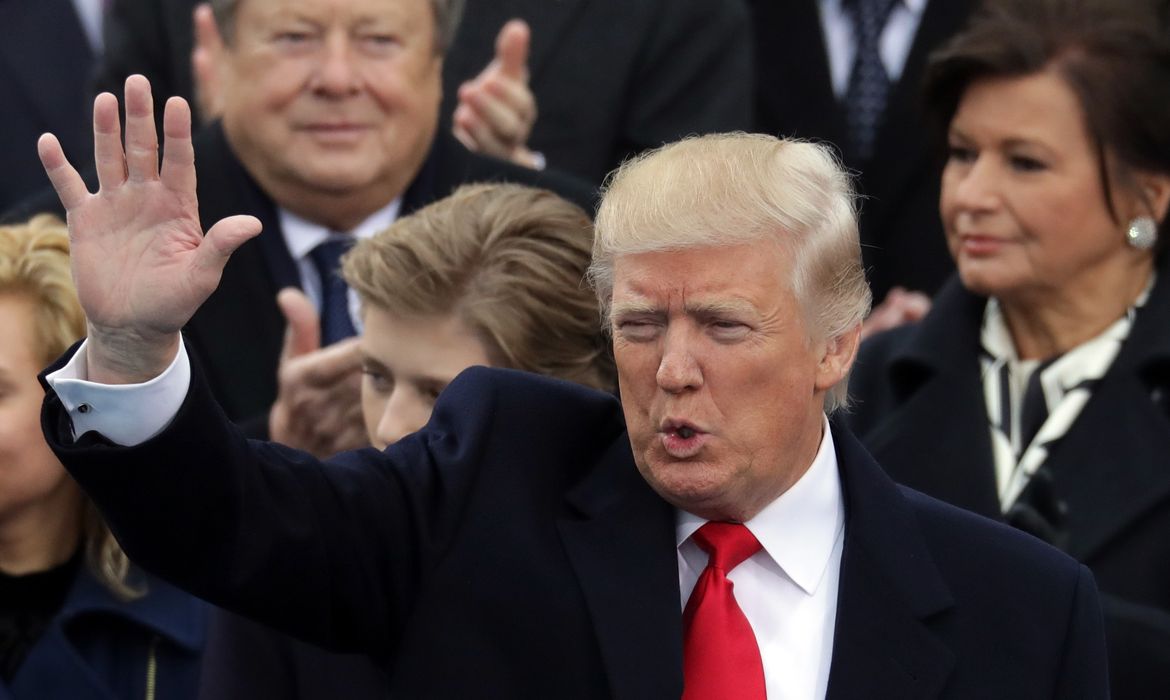
An analysis published on Monday, 14, by Financial Times points out that the United States has crossed a moment of institutional rupture with President Donald Trump’s decision to fail to comply with a unanimous order of the Supreme Court.
The court had determined, by nine votes to zero, the repatriation of Kilmar Armando Abargo García, illegally deported by the government, but Trump ignored the decision and publicly presented a divergent version of the verdict.
The case was released at a press conference at the Oval Hall, with the presence of the Attorney General of the United States, the Secretary of State and the president of El Salvador, Nayib Bukele.
Next to the US authorities, Bukele stated: “I do not consider the possibility of returning García.” No evidence has been presented on alleged bonds of the deported with terrorism, and the statement was accepted without objections by Trump’s team.
According to the Financial Times, the episode reflects a change of posture of the federal executive, which has sought to consolidate the understanding that judicial decisions do not overlap with presidential determinations on migratory topics.
The publication points out that, with this practice, the government establishes the possibility of arrests and deportations without legal guarantees or the right to appeal, including for American citizens.
According to the British newspaper, Trump’s gesture is part of a broader process of weakening the control mechanisms between powers.
The episode marks the expansion of a doctrine in which the executive’s authority is seen as immune to judicial revision in certain areas. For the Financial Times, the case “also represents a symbolic alignment with centralizing regimes”.
Bukele’s presence during the ad generated reactions through the symbolism of the gesture. The publication recalls that, in the previous occasion, Ukrainian President Volodymyr Zelensky was criticized for not wearing a tie on an official visit to the United States, while Bukele, dressed informally, shared the statement in the Oval Hall without reprimands. According to Financial Timesthe situation reveals Trump’s affinity with governments that maintain centralized structures and hardens internal security policies.
The analysis also addresses administrative aspects of the current US government. State lawyers who recognize failures in deportation procedures are, according to reports, removed from their duties.
In several cases, evidence is kept under confidentiality based on national security justifications or simply do not exist. In the case of García, according to the FTthere was no presentation of evidence that support their deportation.
The repression of opponents and the press is also pointed out in the newspaper report. Former director of the cyber security agency and infrastructure, Chris Krebs, was the target of lawsuits after questioning allegations of electoral fraud.
In parallel, the CBS network received threats regarding the renewal of its license after showing a critical interview with Trump on the “60 Minutes” program, with statements by the Ukrainian President about the dissemination of Russian information in the United States.
O Financial Times It also cites the relationship between Washington and El Salvador in the field of security. The US government, according to the publication, did not disclose details of the contract signed to build a detention center in Salvadoran territory, with US funding.
Private security companies linked to the security sector, such as former Blackwater director Erik Prince, would be among those interested in operations arising from this agreement.
The economic scenario is also mentioned. Morgan Stanley Bank report would have warned investors to instability caused by US government economic decisions.
Among the highlighted points are frequent tariff changes and the revocation of anti -corruption rules. Trump forgave allies condemned for fraud and other irregularities, which, according to analysts, contributes to an environment of regulatory uncertainty.
Given the advancement of these policies, the British newspaper points out that it grows among American citizens the concern with the stability of the country’s legal system. The publication draws a parallel with Russia, citing the possibility of asylum requests from citizens in nations with greater institutional predictability.
The meeting between Trump and Bukele and non -compliance with the Supreme Court order are presented by the Financial Times as evidence of a transformation in the institutional foundations of the United States.
The episode is interpreted as a milestone in changing the relationship between powers and conducting internal policies, with possible repercussions on the international scenario and the credibility of the US democratic system.
Source: https://www.ocafezinho.com/2025/04/16/midia-dos-eua-alerta-que-eua-estao-se-tornando-uma-ditadura-sob-o-governo-trump/

